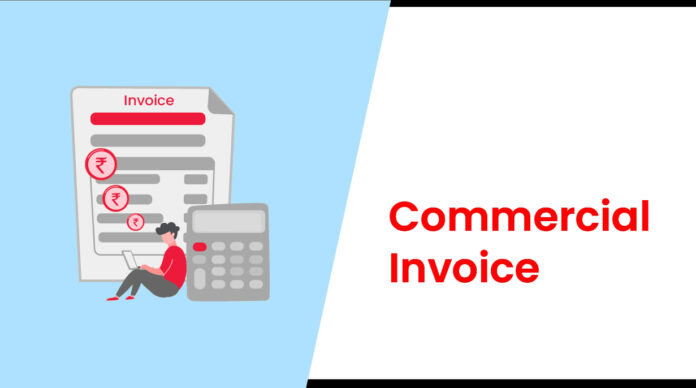Commercial Invoice
A Commercial Invoice is a document which is provided by the seller or exporter to the buyer or importer. It is used for customs declaration and it is a main document for determining the value of the goods being imported or exported.
Key Features:
- Purpose:
- Used for customs clearance, and it helps determine the customs duties and taxes due on the shipment.
- It serves as the payment request from the seller to the buyer, specifying the goods, their value, and payment terms.
- Contents:
- Seller and buyer details: Like name, address, contact information etc. of the seller & buyer..
- Description of the goods: Detailed description of the items which are sold, including the total quantity, weight, and others relevant details.
- Value of the goods: The price for every product and the total value of the shipment.
- Terms of sale or Incoterms: It defines the duties & responsibilities of both parties, including shipping terms, insurance, and payment terms e.g., FOB, CIF, DAP.
- Invoice number and date: A unique & specific reference number for the transaction & a specific date.
- Currency used for the transaction which can be USD or EUR or other currency.
- Payment terms: The payment is due before or after delivery, or through credit arrangements like Letters of Credit.
- Country of origin: The Location where the goods were produced or manufactured or the mother country.
- HS code: The Harmonized System (HS) code, which classifies the goods for customs issues.
- Shipping details: The mode of transportation e.g., air, sea, land, and delivery terms.
- Use in Customs:
- Customs authorities use the commercial invoice to evaluate the correct duty and tax that must be paid on the imported goods.
- It acts as a proof copy of transactions and can be necessary for regulatory compliance in certain countries.
- Importance for the Buyer:
- It is important for the buyer to confirm that the goods received which match the description and price on the invoice for payment and dispute resolution.




